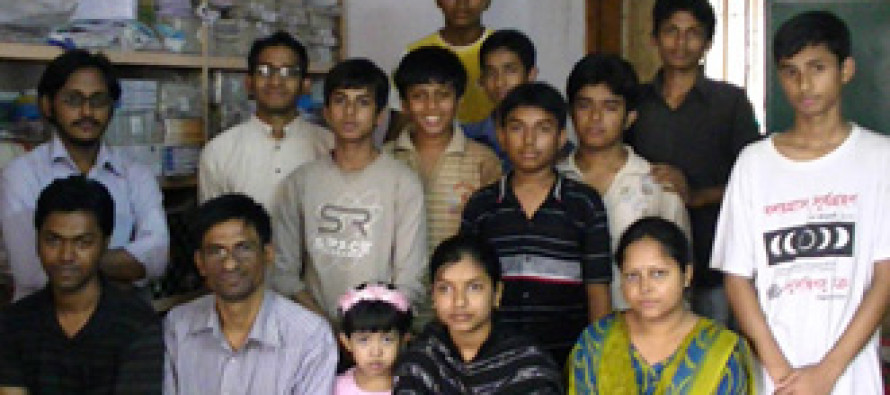Let’s Keep Science Moving Forward In Bangladesh

From my last radio program, I came to know about a group of young stargazers working in Anushandhitshu Chokro, a science club, in Bangladesh. I took, therefore, an opportunity to meet them during my last visit to Bangladesh – it was an excellent experience.
Anushandhitshu Chokro was established by a few science students from Notordem Collage, Dhaka in 6th September, 1975. It now has 18 branches and 500 members across Bangladesh. Anyone from any nationality who is keen to learn about science can become a member – there is no age and gender barrier.
Anushandhitshu Chokro organizes science fairs at schools to involve students in science programs and help encourage them. It also arranges various cultural programs to spread science in the society. There is no proper sponsor for this club; the public contribution, including members’ monthly fees helps the club move forward.
Growing in Australian society, I found it amazing to see the club with limited resources is making its own telescopes to observe space. The club built SID Receiver to work on low frequency radiation, a radio telescope which works on FM bands, and the S Alpha telescope to observe the chromospheres of the sun.
I was surprised to witness that they were making some telescopes for village school students using household items which are due to lack of funding. In order to develop long-lasting telescopes, the club needs sophisticated instruments and financial support. However, I was informed that occasionally it receives very limited funds from the National Science Museum to attend science fairs.
One of the members told me that there used to be more than 300 local science clubs which, due to lack of government support, are now inactive. In my opinion, there is a serious need for in-cash and in-kind support from the government and NRBs (non-resident Bangladeshi) to broaden science activities in Bangladesh.





